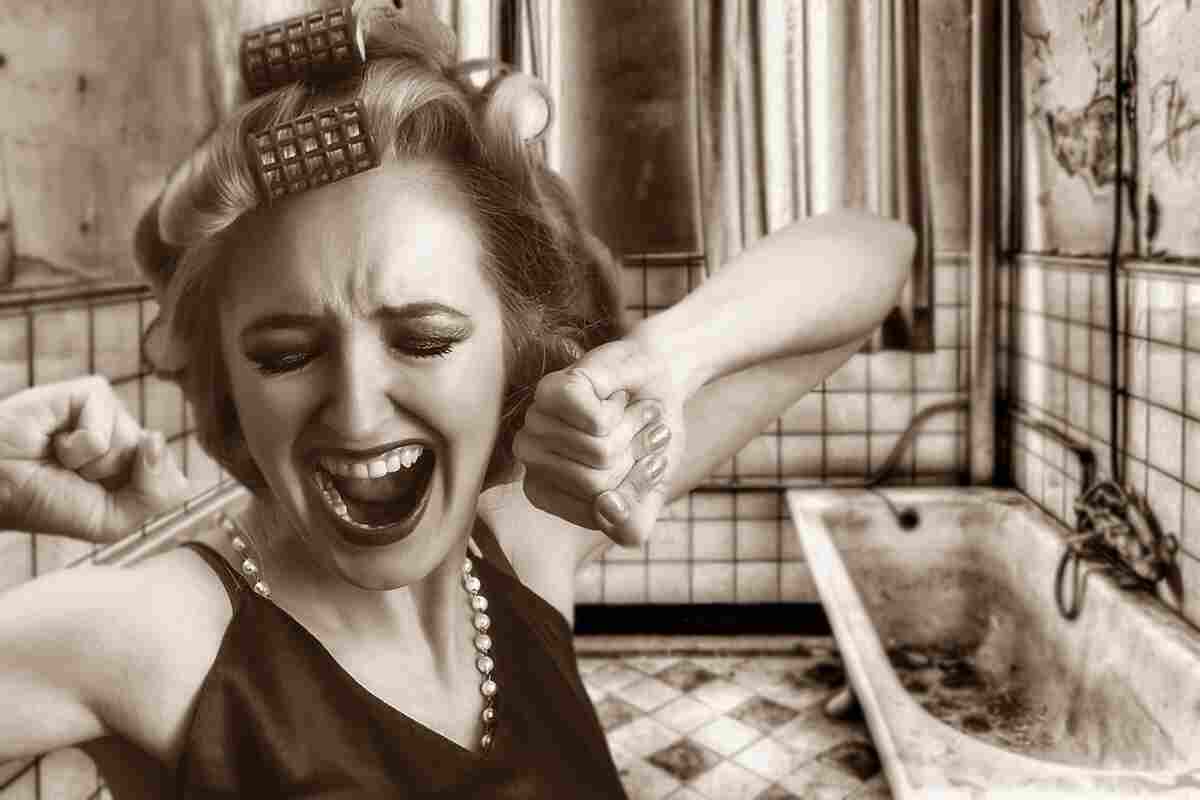Reasons Your Bathroom Smells Like SewageIf you’ve recently noticed an unpleasant sewage smell coming from your bathroom, you’re not alone. It’s a problem that many homeowners experience, and it can be the result of several different causes. In this blog post, we’ll explain five of the most common reasons that your bathroom might be smelling like sewage.
1) Plumbing Issues
One of the most common reasons why your bathroom may be smelling like sewage is due to plumbing issues. There may be an issue with your pipes or septic tank that is causing sewage gas to seep into your bathroom. In some cases, the smell may also be coming from your toilet, sink, or shower. It’s important to have a professional plumber inspect your plumbing system to identify any issues that may be causing the smell.
They may recommend repairing or replacing damaged pipes, unclogging any blockages, or performing routine maintenance to ensure your plumbing system is functioning properly. Don’t hesitate to contact a professional plumber if you suspect a plumbing issue is the cause of the sewage smell in your bathroom.
2) Drains
Another common reason why your bathroom may be smelling like sewage is due to clogged or dirty drains. Drains are responsible for carrying out all the waste water from your bathroom. Over time, hair, soap, and other debris can accumulate in the pipes, causing a blockage.
When your drain is clogged, the stagnant water starts to smell like sewage. The smell can become even stronger if the blockage has been there for a long time.
To prevent clogged drains, it’s important to regularly clean them with a mixture of vinegar and baking soda. You can also use a plunger to remove any blockage. It’s important to avoid pouring harmful chemicals down your drain, as this can cause damage to your pipes.
If you have tried all the above approaches and your drain is still clogged, it’s best to call a professional plumber to help fix the matter. Remember, the longer you wait to address the issue, the worse the smell will become.
3) Ventilation
Poor ventilation is another common reason why your bathroom may smell like sewage. Without proper air circulation, unpleasant odors can linger and accumulate in the enclosed space.
Inadequate ventilation can also lead to the growth of mold and mildew, which can cause musty and unpleasant smells. If you have a bathroom fan, make sure it is properly sized for your space and that it is functioning properly. A bathroom fan should be able to exchange the air in your bathroom at least eight times per hour.
If you don’t have a fan, consider installing one to improve ventilation. Alternatively, you can crack a window or door after taking a shower or using the bathroom to help fresh air circulate and prevent smells from building up. Additionally, if you have a shower curtain, make sure it is properly cleaned and kept open to prevent moisture from getting trapped inside the tub or shower enclosure.
Proper ventilation is essential to keeping your bathroom smelling fresh and clean. By ensuring adequate air circulation, you can prevent unpleasant odors and improve your overall indoor air quality.
4) Cleanliness
Another potential reason why your bathroom may smell like sewage is due to cleanliness issues. A dirty bathroom can create an unpleasant odor that may be mistaken for a sewage smell. This can happen due to a buildup of mildew, mold, or bacteria in the bathroom. These organisms thrive in moist, humid environments and can produce foul-smelling gases.
To combat this issue, it’s important to maintain good hygiene in your bathroom. Regular cleaning and disinfecting of surfaces can help prevent the buildup of these harmful organisms. You should also pay special attention to cleaning your toilet bowl, which can harbor unpleasant smells. Use a toilet cleaner specifically designed to remove stains and odors.
It’s also essential to keep your bathroom well-ventilated to prevent moisture buildup. Run a fan or open a window after showering or bathing to allow excess moisture to escape. This can help prevent the growth of mold and mildew and reduce odors.
Overall, keeping your bathroom clean and well-ventilated is crucial to preventing unpleasant odors from developing. If you notice a sewage smell in your bathroom despite taking these measures, it may be time to seek professional help from a plumber or contractor to assess the root cause of the issue.
5) Miscellaneous
Sometimes, despite our best efforts, our bathrooms may still emit a sewage-like smell. Here are a few other factors that may contribute to the unpleasant odor in your bathroom:
- Dead animals: It’s not uncommon for animals like rodents or birds to make their way into the plumbing or ventilation systems of homes. If they die in there, the decaying flesh can emit a foul odor.
- Water quality: If your water source is contaminated, it can affect the smell of the water in your bathroom. This could be caused by anything from high levels of minerals to chemicals in the water supply.
- Faulty wax seal: The wax seal between your toilet and the plumbing system can deteriorate over time, causing leaks and odors. A plumber can easily replace the seal to fix this issue.
- Dry P-trap: Your bathroom’s P-trap is a curved pipe under your sink that holds a small amount of water to prevent sewer gases from entering your home. If the water in the P-trap evaporates, it can create a foul smell. Simply pouring some water down the drain can fix this problem.
- Mold and mildew: Humidity and poor ventilation in your bathroom can lead to the growth of mold and mildew, which can cause an unpleasant odor. Keeping your bathroom well-ventilated and using mold-killing products can help prevent this issue
Also, visit featurestic.com for more quality information.

